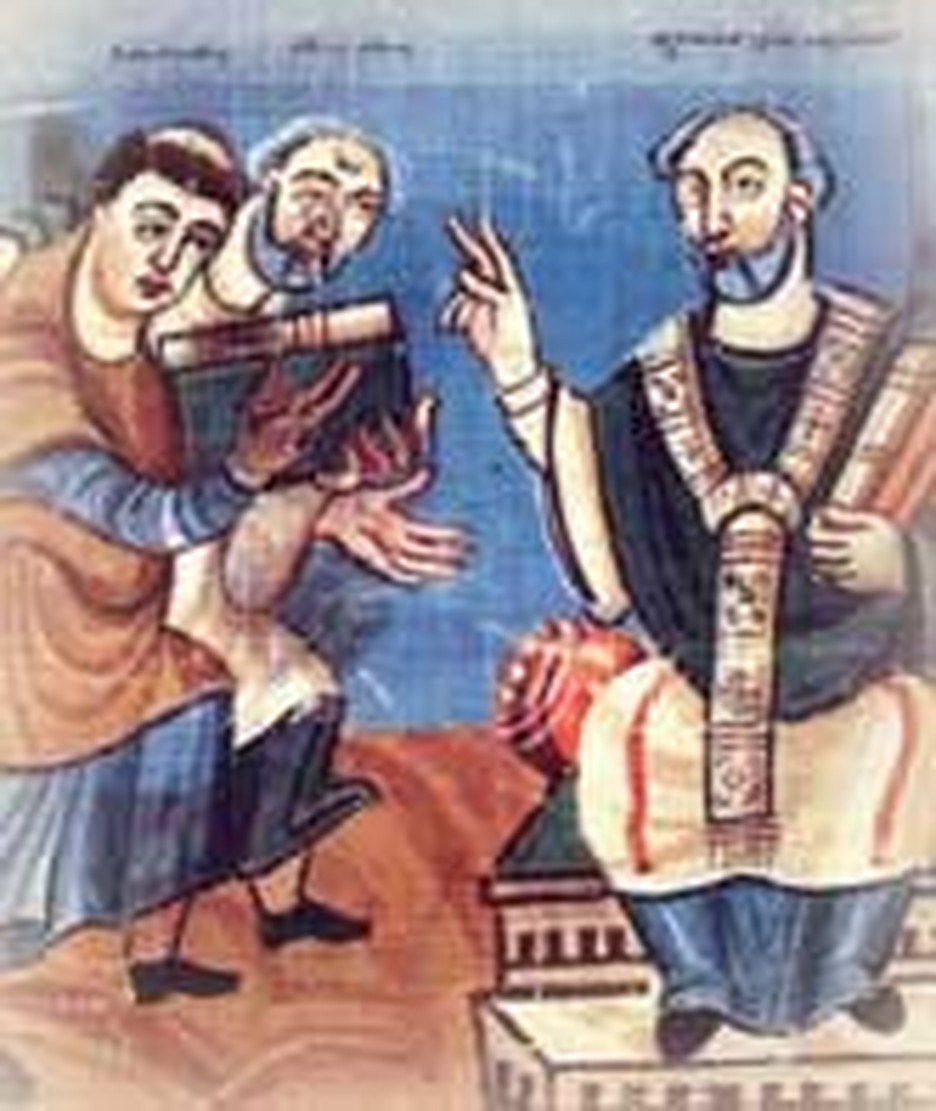
Imagine writing an encyclopedia by yourself. In an age when books were scarce and learning low, Rhabanus Maurus did just that, laying a foundation of knowledge for German monks to build on. Rhabanus was a scholar and monk in Charlemagne's empire, trained by the famous Alcuin himself.
Rhabanus didn't invent the encyclopedia. A Greek named Speusippos compiled the first known encyclopedia about 370 years before Christ was born. Pliny issued another in the first century. A Christian statesman and monk named Cassiodorus wrote another, favoring Christian knowledge, in the sixth century. This is considered one of the formative books of the middle ages.
The first attempt at an impartial digest of all knowledge was by Isidore, Bishop of Seville. However, he drew heavily on inaccurate pagan sources, which reduced the value of his work. Rhabanus imitated Isidore. His work was twenty-two manuscript volumes long. It was called On the Universe (De universo). Beginning with a study of the Trinity, it ended with an examination of garden tools.
Rhabanus was a busy man. The encyclopedia was only one of his projects. He wrote a major work on the training of clergy which covered all kinds of things from church doctrine to mathematics. Nearly every book of the Bible received a commentary from his pen. The scholar also wrote a text on grammar. He oversaw translations into early German.
Elected abbot of Fulda, he completed its renovation and saw it emerge not only as the Christian mission center of Germany but as a leading center of learning. Rhabanus' determination to write an encyclopedia was the result of two beliefs: the first was that Europe's heathen could be converted through Christendom's superior knowledge of science and the arts; the second was that monks should be well-educated so they could understand and interpret the Bible better.
When Louis battled his way to supremacy after Charlemagne's death, Rhabanus fled for his life. He had given political advice to Lothair I. Louis later forgave the scholar and made him Bishop of Mainz. There Rhabanus showed genuine concern for the poor, feeding hundreds during the famine of 850.
When Rhabanus Maurus died on this day, February 4, 856, he left an indelible mark on his world. Not only did his books live on, but so did the scholars he trained and the schools he founded. He was a major figure of what is called the "Carolignian renaissance."
Bibliography:
- Collison, Robert Lewis. Encyclopaedias: Their History Throughout the Ages; a bibliographical guide with extensive historical notes to the general encyclopaedias issued throughout the world from 350 B.C. to the present day. New York, Hafner Pub. Co., 1964.
- Johnson, Paul. History of Christianity. New York: Atheneum, 1976.
- Ott, Michael T. "Blessed Maurus Magnentius Rabanus." The Catholic Encyclopedia. New York: Robert Appleton, 1914.
- "Rhabanus Maurus." New Schaff-Herzog Encyclopedia of Religious Knowledge. Grand Rapids: Baker Book House, 1954.
- Various encyclopedia and internet articles.
Last updated May, 2007.








